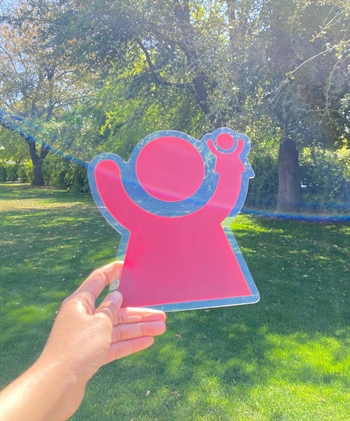A Registered Play Therapist(TM) is a secondary level of credential, which means RPTs also have a primary license to practice mental health counseling in the state where they practice. Examples of a primary license might be a Licensed Professional Counselor (LPC), Licensed Marriage and Family Therapist (LMFT) or a Licensed Clinical Social Worker (LCSW). A primary license must be obtained prior to becoming a Registered Play Therapist. Each primary license has its own criteria that must be met before earning the license. For the sake of this post, I will explain the LPC as that is my primary licensure.
Where would I start?
Individuals who want to provide counseling to kids and become an RPT must start by earning a bachelor’s degree. Bachelor’s degrees are about 4 years of study, and you typically earn 120 hours of undergraduate education. With a bachelor’s degree you can apply to a graduate program to earn your master’s degree. My master’s degree was a 48-hour graduate degree; however, today most graduate master’s degrees require 60 hours after gaining your bachelor’s degree. Master’s degrees are offered in counseling, community mental health, social work, and marriage and family therapy.
Once you have earned your master’s degree, individuals must sit for a licensing exam and upon successful completion, can then apply with their state of choice to receive the license to practice counseling. The license an individual first gets is not an independent license, meaning the individual must practice under supervision until they gain the 3,000 experience hours. Texas has guidelines that state these hours cannot be earned any faster than 18 months. Are you still with me? If you are keeping up with time, we are at 7.5 years minimum of education and experience. Other states, such as Arkansas and Louisiana specify the individual must be under supervision for 24 months while gaining the 3,000 experience hours.
It should be noted that this level of training/education, would allow an individual to practice counseling with any age population. But we learn in specific play therapy training that children are not ‘miniature adults,’ and therefore should not be treated as such. Developmentally, children are not able to sit and talk about their struggles. Children communicate through their play.
Child Specific
The Association for Play Therapy has set forth guidelines and oversees the educational/training component of their credential, Registered Play Therapist or RPT. RPTs must earn education, practice/experience and supervision for a minimum of 2 years. During the 2 years, 150 hours of education are earned in areas of play therapy theory, history of play therapy, play therapy skills, and social and cultural diversity. Individuals earn 350 practice/experience hours while attending supervision from a Registered Play Therapy-Supervisor, for 35 hours.
If it sounds like a lot of education and training, it is. But that’s not the end. Individuals with a license to practice counseling (LPCs) also have to renew their license every 2 years with their state. Renewal consists of providing documentation of 24 CEUs (continuing education units) earned since the last renewal. The Association for Play Therapy also requires renewal of your credentials with 36 hours of CEU gained every 3 years.
Therapists are constantly learning and trying to grow so we can provide the best services to the communities we have the privilege of serving.
For more information, you can visit the Association for Play Therapy’s website www.a4pt.org

